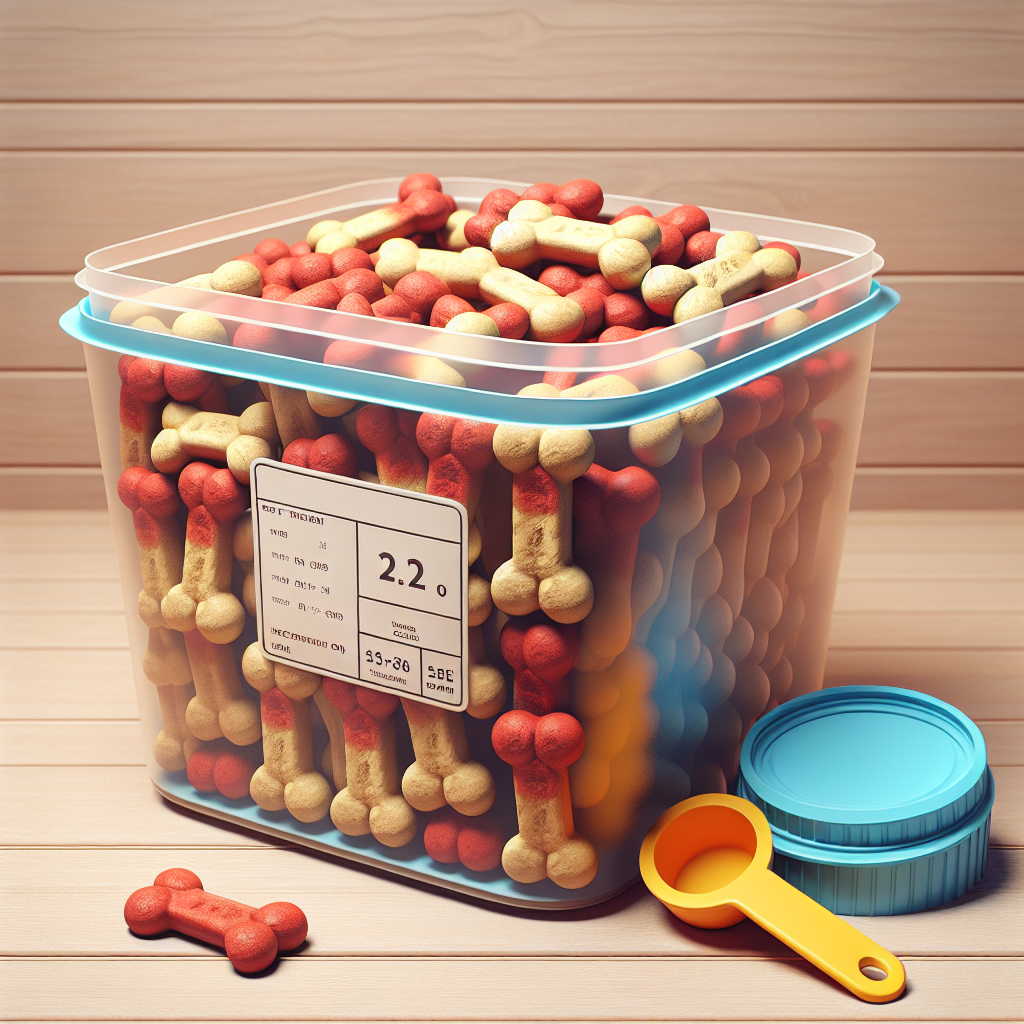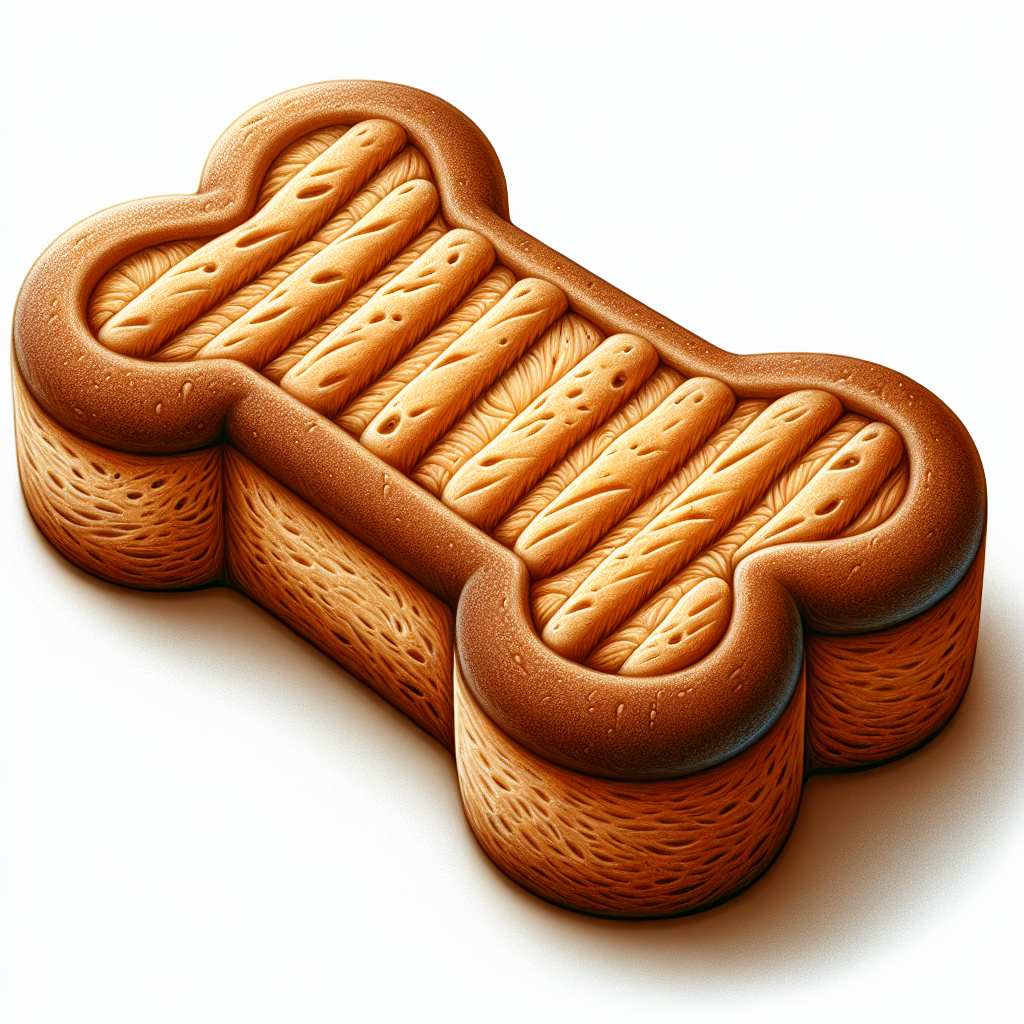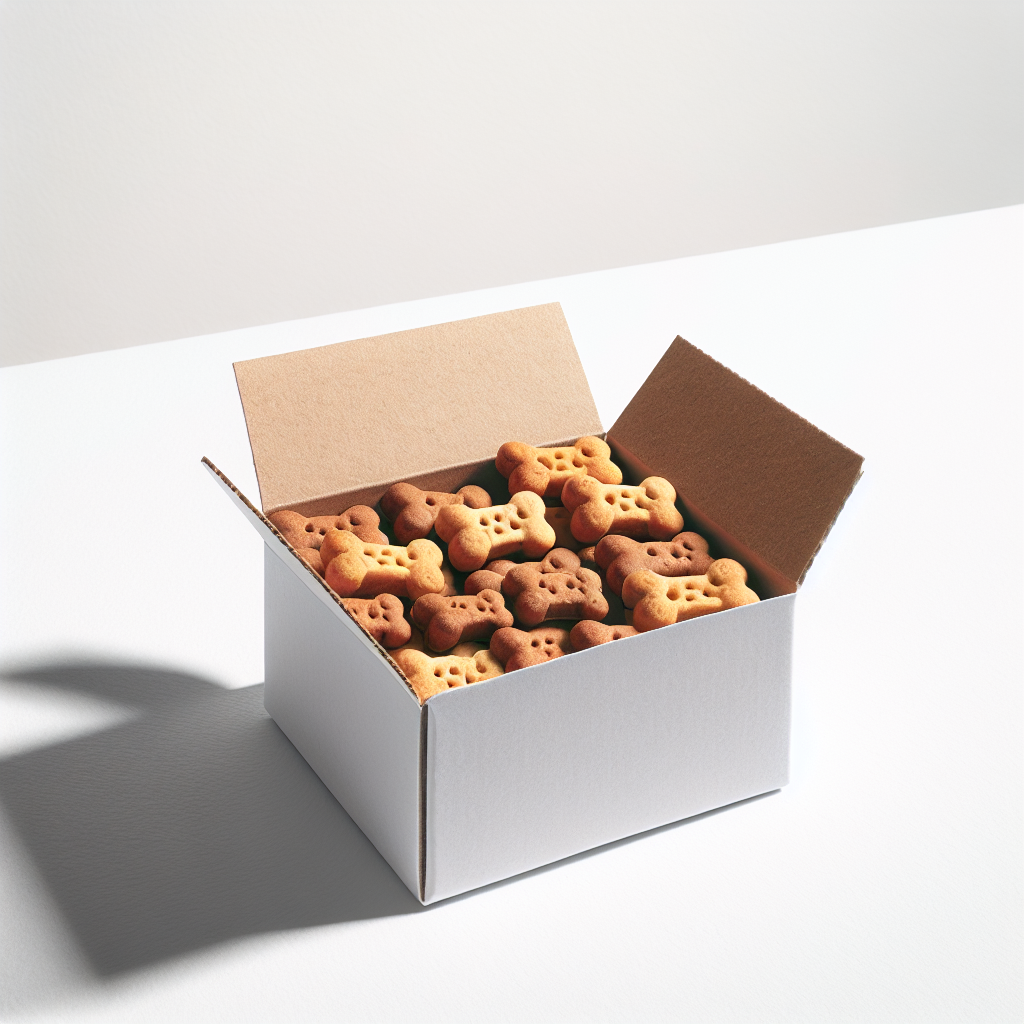Are Milk Bone Dog Treats Safe? The Truth Unveiled
When it comes to pampering our pooches, we all want to offer them the best treats for their enjoyment and health. Milk Bone dog treats have been a staple in the homes of pet owners for generations, promising to provide tasty rewards for our four-legged friends. But a question that often surfaces among conscientious dog owners is: "Are Milk Bone dog treats safe?"
Understanding the safety of these treats involves a deep dive into the ingredients they contain, the nutritional benefits they offer, and any potential health concerns they might pose. Our pets rely on us to make informed choices about their diet, and as responsible pet parents, it's crucial to be well-versed with the products we use to ensure our dogs' wellbeing.
At Happypup.dog, we are committed to the happiness and health of your canine companions. Treat your furry friend to the joy they deserve with our range of delicious and nutritious dog treats. Stay tuned as we unveil the truth about Milk Bone dog treats, and help you make the best choices for your beloved pup's snacking habits.
Understanding Milk Bone Ingredients

The foundation of any dog treat's safety and nutritional value lies in its ingredients. Milk Bone dog treats are known for their crunchy texture and palatable flavor, but what exactly goes into these popular biscuits? Common components found in Milk Bone treats include cereals, meats, and minerals, each playing a role in the overall recipe. Wheat flour and meat and bone meal often serve as primary ingredients, while added vitamins and minerals such as vitamin D3, vitamin B12, and calcium are incorporated to support canine health.
However, some dog owners express concerns about ingredients such as BHA, a preservative used to maintain freshness, which has raised questions about its long-term safety for dogs. Artificial colorings and flavors are also present, which may not be necessary for a dog's diet and can be a point of contention for those seeking all-natural options for their pets.
It's essential to consider your dog's specific dietary needs and sensitivities when choosing treats. While Milk Bone dog treats may provide a satisfying crunch and are fortified with vitamins and minerals, the presence of certain additives can be problematic for dogs with allergies or sensitivities. As we continue to explore the safety of these treats, it becomes increasingly important to evaluate these ingredients in the context of your pet's unique health profile.
Nutritional Analysis of Milk Bone Treats
When assessing the safety and suitability of dog treats for your furry companion, a thorough nutritional analysis is indispensable. Milk Bone dog treats are often marketed as a beneficial addition to a dog's diet, offering a blend of essential nutrients. These treats typically contain a mix of protein, fiber, fat, and moisture, with specific percentages varying across different product lines.
The protein content in Milk Bone treats, derived mainly from meat and bone meal, supports muscle development and repair. Fiber sourced from wheat and other grains aids in digestive health, although it's crucial to note that some dogs may be sensitive to grains. Fat is also a key component, providing energy and aiding in the absorption of fat-soluble vitamins.
Additionally, Milk Bone dog treats are often fortified with vitamins and minerals to promote overall health. For instance, they may contain vitamins A and E for immune support, vitamin D3 for bone health, and B vitamins for energy metabolism. However, the presence of added sugars and salt, intended to enhance taste, should be considered, especially for dogs with dietary restrictions or those prone to obesity.
While the nutritional content of Milk Bone treats may appear to support a balanced diet, it's critical to recognize these treats as supplementary to a dog's primary nutrition. They are not intended to replace a well-rounded, complete dog food diet. As with any treat, moderation is key, and Milk Bone treats should be given as part of a controlled diet to prevent overconsumption of calories and maintain a healthy weight.
Potential Health Concerns with Milk Bones

Despite the popularity of Milk Bone dog treats, there are potential health concerns that pet owners should be aware of. One of the primary ingredients in many treat varieties is wheat, which can be a source of gluten. Dogs with gluten sensitivities or allergies may experience adverse reactions such as digestive distress, itching, or skin rashes when consuming products containing wheat.
Another concern is the presence of BHA (Butylated Hydroxyanisole) and BHT (Butylated Hydroxytoluene), which are artificial preservatives found in some Milk Bone products. These chemicals have been subject to controversy due to their potential health implications. Studies have suggested that high levels of these preservatives may be linked to certain health issues, although they are currently approved for use in pet foods at low levels by the FDA.
Additionally, Milk Bone treats may contain artificial colors and flavors, which are unnecessary for a dog's diet and may cause hypersensitivity in some dogs. The inclusion of sugar and high salt content can also raise concerns about the potential for obesity, dental problems, and sodium-induced health issues, particularly in dogs with pre-existing heart conditions.
It is essential for dog owners to carefully read the ingredient list and nutritional information on Milk Bone packaging and consult with a veterinarian to determine the suitability of these treats for their individual dogs. It's also important to monitor a dog's reaction to new treats and to report any unusual symptoms to a veterinarian immediately.
Comparing Milk Bone to Other Dog Treats

When considering the array of dog treats available on the market, Milk Bone treats often find themselves compared to other brands. It is important to take a closer look at how Milk Bone stacks up against alternative treat options in terms of ingredients, nutritional value, and overall health benefits for dogs.
Many high-quality dog treats prioritize natural ingredients and eschew artificial additives. They frequently feature real meat or vegetables as the primary ingredients, providing a rich source of protein and essential nutrients. These treats may also contain supplements like vitamins, minerals, and omega fatty acids to support a dog's overall health. In contrast, some Milk Bone treats can contain artificial preservatives and colors, which may not align with the preferences of health-conscious pet owners.
Grain-free treats have become popular as they cater to dogs with grain sensitivities or allergies. Milk Bone does offer grain-free options, which places them in direct competition with other brands that specialize in grain-free products. However, the choice between Milk Bone and other treats may come down to the specific dietary needs and preferences of the individual dog.
Dental health is another important factor to consider. Certain dog treats are designed to help reduce plaque and tartar buildup, promoting better oral hygiene. Milk Bone offers dental chews, but it is vital to compare their effectiveness with other dental treats that may use different formulations or mechanical actions to clean teeth.
Ultimately, when comparing Milk Bone to other dog treats, it's essential to consider the variety of treats available, their ingredients, and how they fit into a balanced diet for your pet. The decision should be based on the dog's health requirements, any dietary restrictions, and the owner's preference for natural and wholesome treat options.
Final Thoughts on Milk Bone Treat Safety

In conclusion, when asking "are milk bone dog treats safe?", we find that the answer is not entirely black and white. Milk Bone dog treats have been a staple in the pet industry for years and are known for their affordability and palatability among canines. While they may not be the most natural option on the market, they are considered safe for dogs when given in moderation as part of a well-rounded diet.
It is crucial for pet owners to read ingredient labels carefully and understand the dietary needs of their dogs. Some pets may have specific sensitivities or health issues that require a more tailored treat selection. For those interested in more natural alternatives, there are plenty of options available that offer simple, wholesome ingredients without the use of artificial preservatives or colors.
The safety of your furry friend is paramount, and providing a variety of treats can help ensure they are not only enjoying their snacks but also receiving nutritional benefits. Treat your furry friend to the joy they deserve with our range of delicious and nutritious dog treats. Explore a carefully curated selection that prioritizes both taste and health at Happypup.dog.
Whether you choose Milk Bone or an alternative, always monitor your dog's reaction to new treats and consult with a veterinarian if you have concerns about your dog's health or diet. The well-being of your canine companion is what truly matters, and providing them with the best is a commitment every pet owner shares.






